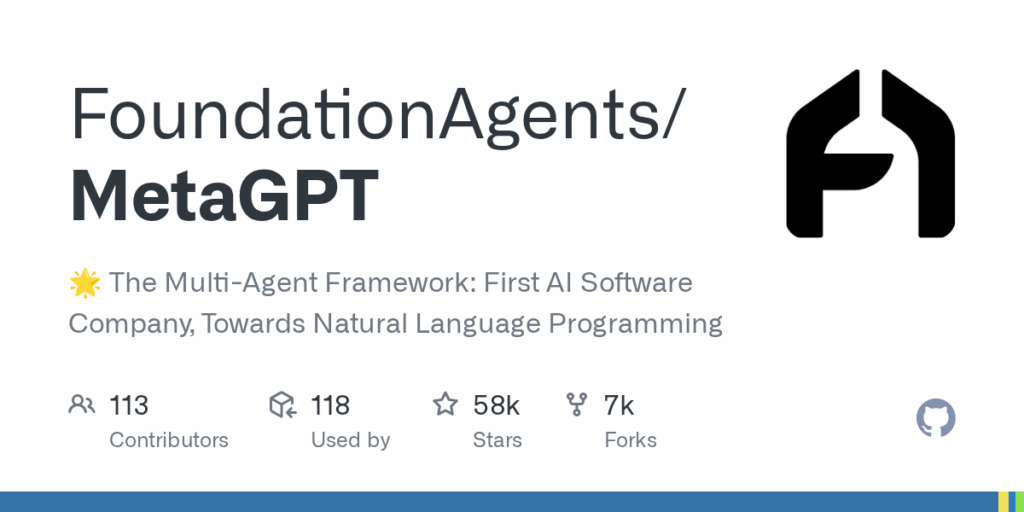MetaGPT
Basic Information
MetaGPT is a multi-agent framework that assigns distinct GPT roles to collaborate like a software company and tackle complex tasks. It accepts a single-line requirement and produces software artifacts such as user stories, competitive analysis, requirements, data structures, APIs and documents. The project materializes standard operating procedures as orchestrated agent roles including product managers, architects, project managers and engineers and implements the philosophy Code = SOP(Team). It is delivered as a Python library and CLI for generating project repositories and for running specialized agent roles. The README provides installation and configuration guidance, example use cases, tutorial links and references to research papers. The project targets developers and researchers who want to build, orchestrate or experiment with LLM-based multi-agent systems for software development workflows.








